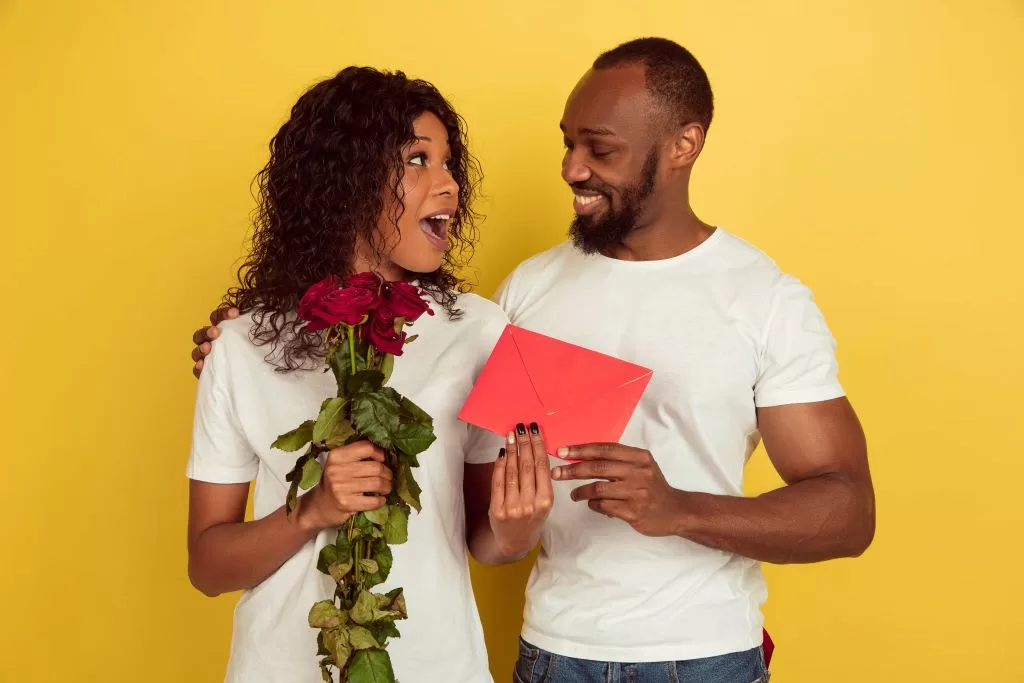The act of love transcends a single month occasion, instead, should permeate every aspect of our lives, becoming our way of being.
The Month of Love can be a lot of fun, but we should not ignore the opportunity to change our relationship culture—and, in so doing, shift the dial on GBVF.

We are all happy to receive romantic gifts, and that’s certainly the expectation during the month of February, thanks to Valentine’s Day. As fun as all the hearts and roses might be, the sentiments behind our perfect love stories can hide some ugly truths.
Regrettably, South Africa is widely known for its alarming statistics in gender-based violence and femicide (GBVF), ranking among the highest in the world. However, the spotlight on these cases merely scratches the surface of a deeper issue: a pervasive cultural environment that fosters and enables GBVF.
Let me give context, all too often, domestic abuse is often “atoned” for with flowers or other similar gifts—until the next time. Looking more deeply, we all need to recognise that to a greater or lesser extent our culture tends to use these gifts, or celebrations like Valentine’s Day, Mother’s Day or Father’s Day, to sugarcoat abusive systems or habits of behaviour that pervade our daily life.
All too often, we find ourselves showering our partners with lavish gifts on certain occasions, yet during the remainder of our time together, we engage in behaviours that constitute abuse, albeit subtle forms such as emotional abuse, these can still make their lives unbearable. This pattern of behaviour transcends social class boundaries—indeed, one might argue that it may be more pronounced among affluent partners. A woman flaunting a R30,000 handbag or seen at a luxurious resort in Bermuda could very well be the a ‘beneficiary’ of the opulence as a form of apology for the abuse that they endure from their partner. And there’s no getting away from the fact that emotional abuse often ends up becoming violent.
The toxic game of power and control
Those dedicated to aiding abuse victims often note that perpetrators employ specific toxic behaviours to assert and sustain power over their domestic partners. These behaviours encompass coercion and threats, intimidation, manipulation, isolating the partner, and attempting to erode the partner’s self-esteem by inducing feelings of guilt or belittling them.
Abuse could also include preventing a partner from obtaining employment or restricting their access to financial resources, isolating them from their support network of friends and family, or exploiting children as a means of control and manipulation.
Most insidiously, abusers frequently dismiss their partner’s grievances by trivializing their concerns or outright denying the existence of abuse—a tactic commonly known as gaslighting. What’s particularly noteworthy is that these behaviours don’t always manifest overtly. One could argue that they are most effective when they operate subtly, leaving the abused individual questioning their own perceptions or feeling as though they are overreacting. This dynamic enables the abuser to indefinitely avoid confronting their behaviour and shirking responsibility for it.
To clarify, I’m not advocating against the expression of love through giving or receiving romantic gifts. However, as we conclude the month of Love, it’s crucial to engage in deep introspection regarding how our behaviors, often disguised as acts of affection, might actually harm our partners. Are there ways in which our conduct could veer into abusive territory? Do we inadvertently belittle our partners or discourage them from maintaining connections with their family and longtime friends? Do we find ourselves interrupting their narratives with corrections or mocking their errors? These questions prompt us to critically examine our actions and their potential impact on those we love.
A good time to do this is when we feel moved to make a big romantic gesture, because it might be our subconscious signalling that our behaviour hasn’t been of the best.
Love makes the world go round—let’s ensure it guides our interactions with our partners daily, not just on special occasions. Let’s collaborate to nurture relationships grounded in respect, equality, and free from GBVF.



























